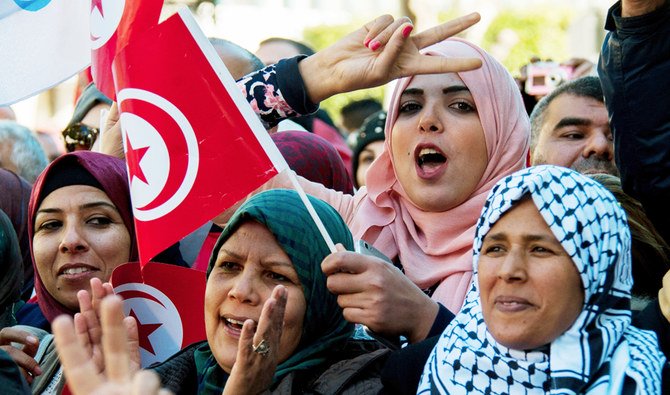
- ARAB NEWS
- 03 Jul 2025

TATAOUINE, TUNISIA: In the southernmost Tunisian town of Tataouine, being young often means being unemployed, while even those who have a job dream of landing a “real” one in the energy sector.
For weeks, protesters have blocked roads and sought to prevent trucks from delivering supplies to the remote El-Kamour pumping station in the desert outside the town.
Last weekend the protests turned violent as demonstrators clashed with security forces.
“What hurts us most is that God has given us everything, but effectively we have nothing,” said Khaled Jady, 32, who, like many of the protesters, had hoped for a “real” job in the oil sector.
Protesters have been demanding that the government honor a deal reached after a months-long sit-in during 2017 to invest millions in the region’s development and provide jobs to thousands.
“They never hire anyone from the region. They tell us we have no formal training” to work in the energy sector, said Jady.
“They should train us for one or two years and then give us jobs,” said the young man whose own education stopped at primary school level.
Southern Tunisia is one of the country’s most marginalized regions, with above average unemployment, failing infrastructure and a stunted private sector.
The town of Tataouine, which is also the name of the governorate, lies some 550 km south of Tunis at the gates of the Sahara desert.
Its schools are neglected and universities in nearby cities offer little hope of a career to young people seeking to build a future, unlike those on the coast that offer engineering and medical degrees.
Unemployment is the highest in Tunisia at 30 percent, according to official estimates, with the rate for young people considerably higher.
Nearly a decade after the revolution that toppled Zine El-Abidine Ben Ali, the government has yet to resolve regional inequalities.
Mohammed, who holds a master’s degree, is a waiter at a cafe in Tataouine, but he describes himself as “unemployed.”
What frustrates him most is not the lack of jobs but the lack of wider opportunities. He hopes that the government will open up jobs in state schools so that he can find work.
Tunisian President Kais Saied, who had focused on Tunisia’s disenfranchised youth during his 2019 election campaign, met with activists from the southern region earlier this year to discuss their plight.
On Tuesday Saied called on demonstrators in Tataouine to “overcome” their situation and not just demand jobs.
“You should submit development projects yourselves” to the government, the president said.
But Khaled Handoura believes that the problem also lies in the low salaries offered by job providers, like the private sector where the monthly pay is often under €300 ($330).
“There are no jobs out there that allow you to start a family,” said Handoura, who lost his job as an engineer following a workplace injury.
“In order to get married we need money,” he added.
With little help from the government, Handoura said, illegal migration remains the only solution for “90 percent of Tataouine’s young people.”
“They prefer to go abroad and earn 50 euros a day than stay here,” he said.
When asked what dreams he has for the future, his answer is bleak.
“I have dreams, but then reality hits, and it is a reinforced concrete wall.”
AFP